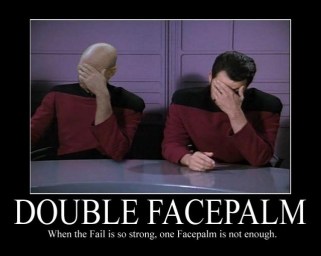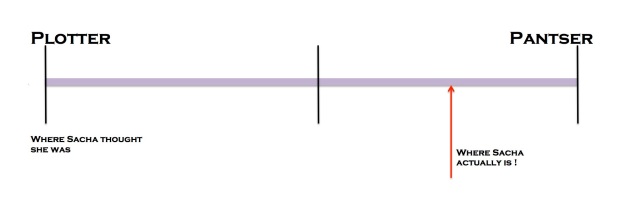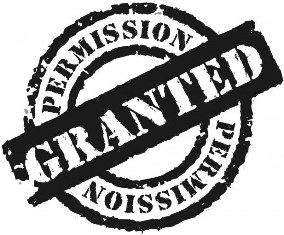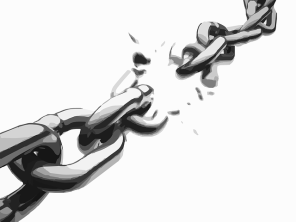I love reading blogs written by other writers, editors, publishers and general creative bods. I particularly love reading blogs on ‘writing’ and how to write better. That’s why in my own blog I like to explore the lessons I’m learning as I progress on my journey to be a writer.
But there’s a snag. In reading all those posts, without realising, I got myself caught up in thinking I should be doing something a certain way. Using a character template for example, and then getting caught up in which specific template I should use, whether I should be using one for scenes or settings, having to outline, or not outline, style of note taking, being a pantser or a plotter, editing as I go or writing to the end and then editing… the options are endless and I wrapped myself up in a big knotty ball of stress trying to figure out which was the best method of writing to produce the best story.
Ultimately I ended up not doing much writing but hopelessly trying to do all of them, and not actually producing anything productive. This problem is what led me to start the author interview series. I was fascinated (obsessed?) with other writers writing processes. I wanted to learn what their secret trick was. I was hoping for some nugget of inspiration or gem of knowledge that would tell me how I could write that best seller, or actually, and more importantly just finish my own god damn novel!
You know what I discovered…? There is no gem, no nugget and no secret. It doesn’t exist. And you know why? Because only YOU know how you write best.
I was busy interviewing Dylan Hearn on his writing process when I had an epiphany, a real one. It’s been known, and annoyingly I’m normally in the car. Anyway, this epiphany came out of a discussion on his method for developing characters, without trying to give too much away from his interview, he develops them through edits, not necessarily before sitting down to write the first draft. Commence one of those, really awkward self revealing moments when I was all like:
‘Wait, whaaaat??? You mean you DON’T have to know every single detail about a character before you start writing?’
A hundred thousand pennies dropped at once, and all my weary up tight cogs clicked into place. It might seem obvious to you, but it wasn’t to me. I had been convinced I needed to have the perfect character before I started to write.
Apparently, you don’t.
(*$%&@##)
And you know what else? You don’t have to have a bunch of other shit sorted either. You could, if that’s what works best for you. But you don’t have to. YOU DON’T HAVE TO. F*** my actual life!
Why was that so hard for me to understand? I’m a grown adult for goodness sake. I guess I got caught up in trying to work out where I sat on the plotter/pantser line. I always thought I would be on the extreme end of the plotter continuum. But I’m not. I like a good solid outline, with a couple of sentences outlining each chapter, and that’s it. I don’t want anything else. It wasn’t until Dylan told me he edits the characters to perfection during the editing stage that I realised why I had been having such an issue just getting on. I thought I needed to have perfection before I started, but I don’t.
Dylan did something else pretty amazing. It might sound odd, but he gave me the best gift I could of asked for.
He gave me permission to do it my way.
To ignore everyone else, put the advice to the side, and just figure out my own process. It was an odd realisation that I needed someone else to give me permission to do it my own way. I don’t really consider myself a conformist, in fact I revel in breaking the rules. So it was a shock to me that I couldn’t just give myself permission. But I couldn’t, and I suspect I’m not the only one. I guess because writing matters so much to me, I wanted to be sure I was doing it right, and writing the perfect way.
This epiphany leaves me in somewhat of a pickle, because now I don’t really know what my writing process is, I’m back to square one and half way through a book. But that’s ok, there’s nothing better than an adventure into the unknown, and I don’t imagine I will get it perfect on book one anyway.
I want to give you the same gift Dylan gave me….
I’M GIVING YOU PERMISSION
I’M GIVING YOU PERMISSION
Put the advice blogs down, put the writing technique books away, sack the ‘rules’ off and back away from any words of wisdom.
Get messy, get frustrated, get upset, get emotional if you need to, but do it your way, and enjoy working out what that is. I know I’m going to.






Great and powerful informative Post!
LikeLiked by 1 person
Thanks so much I really appreciate your comment and time spent reading the post. Have a fab
Monday. 😄
LikeLiked by 1 person
Cheers – I adore your page:)
LikeLiked by 1 person
Really? 😱 You actually just made my day! Thanks for being so lovely 😄😄😄😄😄
LikeLiked by 1 person
just amazing – I feel a vitamin & musical therapy since I play professionally:)
LikeLiked by 1 person
If I were religious, or female, or some or any of several other things I’m patently not, I’d be yelling “Hallelujah, sista” right now.
LikeLiked by 4 people
Lol! Thanks Keith God knows why it took so long to realise!
LikeLiked by 1 person
maybe in a parallel universe, Keith you are a divine prophetess and you have accidentally started peeping through a herniated sliver in the space time continuum
LikeLiked by 2 people
Hmmm. Combining divinity and a herniated sliver would seem to open up the possibility of rapture through a rupture.
LikeLiked by 2 people
Tee hee…perfect!
LikeLike
lol your wit is clearly returning – is sleep also returning?
LikeLike
Getting there, I’m happy to say.
LikeLiked by 1 person
Wish I could have read this post at the beginning of my writing journey! Not only did I get confused by all the ‘advice’ of other clearly ‘successful’ Indies out there, but it gave me feelings of inadequacy and made me feel quite angry and aggressive towards them lol! There is some evidence of this out there in blogland somewhere, although I dont think I offended anyone! I hope not anyway! 😀 Now I have learned what works for me, so I just get on with it. And I never give out writing advice on my blog. I’m still a newbie, there are tons of other blogs out there doing it better than me, so I’ll leave it to the ‘experts’! That’s another thing I’ve learned on my writing journey, blog about what you love, not what you think you should write… erm… have I just given out a bit of writing advice??? Doh! 😨
LikeLiked by 2 people
I know what you mean about the feelings of inadequacy, it really got to me, I was so frustrated that I was getting blocked yet reading more and more tips thinking this should be sorting me out. I guess I am a little guilty of doing it myself though… I guess in one light this blog could be seen as advice, although I mostly try to just share lessons I am learning along the way, rather than being preachy or teachy! But your so right, I just try to blog about things I am passionate about or that I think are cool! lol, that makes me sound sad!
LikeLiked by 2 people
No it doesn’t! If it does, then that must also apply to the rest of us, lol! I think you’re a very emotional, sincere and enthusiastic person, and it shines out of your blog. That’s why I like it. There’s a difference between honestly sharing your experiences and telling people what they should do. I enjoy the first but can’t stand the latter… I was never much good at allowing people to tell me what to do… quietly stubborn lol!
LikeLiked by 1 person
I don’t know what to say thanks so much for saying such lovely things. I do try to be sincere, and just share the good things I learn along with the mistakes I make, at the end of the day I am only human, and I’m not JK Rowling, so I am going to make mistakes and what better way of learning from them than reflecting and sharing? HA! I have always been a secret rule breaker – aren’t rules there just to be broken?! 😛
LikeLiked by 1 person
That is so true! 😤 It’s also good that you’re not afraid of making mistakes, most people are terrified of being seen to make mistakes!
LikeLiked by 1 person
Thank you for your lovely words, Sacha. I don’t think there is anything wrong with looking for writing advice and continually trying to adapt and improve your process, but in the end, as you said, the only writing process that will work for you is yours.
With understanding characters I find it similar to meeting somebody for the first time. Within a few minutes you get an idea of the person from what they say or how they act, then over time you get to know them on a deeper level. Sometimes this confirms your initial understanding and sometimes you realise you had completely the wrong idea about a person. Either way, this happens over time. From a writing process, you could have worked this out before hand or you could discover it as you write.
Personally, I prefer the latter method. It makes for a more exciting writing adventure for me.
LikeLiked by 2 people
You are more than welcome, you did me an ENORMOUS favour by helping me have an epiphany. I just love the way you analogise, that is a great way to think of character development – getting to know someone, and that takes time in real life, so why not in books… are you some kind of author whisperer? :p
LikeLiked by 1 person
Reblogged this on Suffolk Scribblings and commented:
A great post* from Sacha about the importance of discovering ‘your’ writing process.
*And no, I’m not just reblogging this because I’m mentioned 😉
LikeLiked by 2 people
thanks so much 🙂
LikeLike
I too, should have read this post at the beginning of my writing journey. I have probably read hundreds of blogs, articles, books, and anything else I could find on my quest to become the perfect writer. Which in itself is odd, because with the rest of my life, I have always stubbornly done things my way.
I was never sure if I could have done things a little better, which is where this compulsion must have come from. Writing is important to me, but that is the secret, as you have so brilliantly pointed out. It has to come from me, and no one else.
LikeLiked by 1 person
Me too! I have read sooooo many posts and books on writing, and like you, it was all because i was trying to figure out if i could have been writing better, sigh, such a waste of energy stressing about unecessary things! Thanks for stopping by and reading 🙂
LikeLike
Excellent blog, Sacha and I agree. I wish I’d learned this lesson earlier!
LikeLiked by 1 person
Thanks so much Katrina 🙂
LikeLike
Everyone has their own style, their own routine, their own definition on how to write. The tricky part is to find it.
LikeLiked by 1 person
So true Rachel, fingers crossed it doesn’t take me a life time to find out!
LikeLike
I’m sure it won’t. 😉
LikeLike
I could easily have become stuck in the same way. I am a linear thinker. People have called me “hyper-organized” and even “rigid” in everyday life. So, I figured I would be a plotter. I also read the craft books and saw the character templates. I collected a bunch, picked them apart and made my own. It looks great.
I filled out the first five lines of two of my “ideal” character templates. Then I got so excited I couldn’t stand it so I sat down to write. Four weeks and 80,000 words later I picked up the two unfinished character sheets and finished filling them out. Then I went back an edited. And that was great. I wrote three books that way.
BUT here’s the catch. I knew I’d had these characters kicking around in my head for 20 years. Yes, I could write THEM without filling out a character template. But now I’ve used up the characters that accompanied me for all those years when I was telling myself I was a non-fiction writer, not a fiction writer. And so – now – I was dead in the water. I thought, okay, I’ve written my three fiction books. Time to go back to something linear.
Except that my readers wanted more and there were so many questions about the world of the story to answer. And so… I filled out another few lines on a couple of character sheets. And… you guessed it, two months and 86,000 words later I finished filling them out. And started editing. (The difference between 20 years of playing with a character and a few months of playing with a character is about 5 weeks of writing time.)
Ah, okay, not a plotter after all.
LikeLiked by 2 people
HA! your comment made me laugh out loud, I am just the same, I wrote my own character template, and tried to use it, did with one of my characters, but I never actually finished it, and ended up blocking myself even more, and partly because I can’t contain myself, I just want to write! I cannot believe how prolific you are, you write so so so many words in such a short space of time, its amazing. Thanks for stopping by 🙂
LikeLike
So true, Sacha. You can listen to what everyone else has to say, and take what is important to you, but you are the one who know you best and you have to be true to yourself. Good on you for giving yourself permission to write it your way. 🙂
LikeLiked by 1 person
lol, thanks Norah 🙂
LikeLiked by 1 person
A truly inspirational post! Amazingly most of those “Rules” and “Have tos”, “Dos” and Don’t” are spouted off by people who are not all that successful. They’re struggling, just like the next one, to figure it all out. In the end, it boils down to figuring out what works best for you. I learned that from my beta readers who were mostly other authors.
LikeLiked by 2 people
Thank you so much :), and yep, thats the thing, I got caught up with all those rules and they weren’t even written by stephen king! I love that you learned your process from beta readers, can’t wait to be in a position to need them 🙂 thanks for reading
LikeLiked by 1 person
If I had a gloss to add it would be there is no one ‘style’ of writing. It changes and you learn and relearn all the time I find. I know I cannot be an exacting plotter but I also know I frustrate myself if I’m all pantster so I slide along the spectrum as I write. I know I tend to overwrite so I fore myself to underwrite and then argue with myself about adding in detail after so much that the next time I overwrite again… not exactly a circle or a spiral of styles, more a messy intestine… (what is it with these stomach analogies?)
LikeLiked by 1 person
lol argue with yourself, feels like my whole life right now! interesting thought that its a sliding scale, makes me think that different books or stories might lead to different processes? this could be long! and HA! I blame the queens flatulence! she started this!
LikeLiked by 1 person
Bloody royalty…
LikeLiked by 1 person
Great post. I’ve been saying this for years. We all walked differently, eat differently, think differently. Why should writing be any less our own unique way? Also, tying to emulate successful writers is a mug’s game except for one thing: They write a lot. They read a lot. See my blog on this. http://bit.ly/1G5g894
LikeLiked by 1 person
Thanks for the comment Larry and for reading. Have popped over and followed your blog 🙂
LikeLike
Even though advice blogs give me ideas, I definitely agree it’s important to write your OWN way!!
LikeLiked by 2 people
Thanks so much 🙂 and thanks for reading 🙂
LikeLiked by 1 person
Reblogged this on North of Andover and commented:
If you’re trying to figure out HOW you should be writing (plotter vs. pantser, how and when to create characters, etc.), you need to read this post from Sacha Black.
LikeLiked by 1 person
Thank you so so much for reblogging my post, made my day 🙂
LikeLiked by 1 person
I, too, had to learn this the hard way. For me the thing that made me go “How did I not know this already?!” was that I’d already been through the “Planning everything makes for frustration, not fun, for me” thing with GMing RPGs! For some reason it never occurred to me to apply the lessons I’d learned then to writing.
LikeLiked by 1 person
Thanks Shannon – can I just ask… what does GMing and RPG mean?
LikeLike
“Into the unknown.” I love it. Thank goodness, my epiphany was back in 2009, very early in my writing career: http://wp.me/p30cCH-KX
Thank you for sharing this. If more writers followed their hearts, there would be fewer suffering artists.
LikeLiked by 1 person
Thanks so much for reading my post, you are so lucky you found out early in your career. will pop over and read your post 🙂
LikeLike
Couldn’t agree more, Sacha. Each of us has to find our own way.
LikeLiked by 1 person
Thanks Lori 🙂 and thanks so much for reading my post 🙂
LikeLiked by 1 person
I’m here via Facebook where Stacy Bennett posted a link to your post, and I’m joining in the chorus of “amens” from other readers. It seems to me that the fundamental flaw in all these rules and nuggets of advice is that they presuppose that each writer has a style that will work for her/him – one writer, one style, muck about until you find it. I think the truth for many writers is that they need to discover the style and process that will work for each book, story, poem, play they write. What works with one story won’t necessarily fly with the next one. Some ideas vomit themselves onto the page in a few messy sittings and others need to be teased and cajoled and into taking shape. Our job is to find the best way into each story, and no one else can map that out for us–although they might point us in some helpful (and not so helpful) directions.
Great post, Sacha. It really helped me refocus some of my own recent challenges. Thank you!
LikeLiked by 1 person
Well thanks to Stacy for sharing my post, :). You make a great point about assumptions and its very true. We are all so different how can we expect the same methods to work for everyone? we can’t. but for some reason I personally spend countless wasted hours beating myself up thinking I am meant to be doing something a particular way – but why? I should tell myself to shut up and get on with it. its so unhelpful of myself and I end up procrastinating and doing everything other than the one thing i want to do… write! Thank you so much for stopping by and reading and I am glad the post helped you 🙂
LikeLike
I haven’t done much fiction (in fact none apart from the flashes) but I agree that you have to work out what works for you. I follow (I think Hemmingway) in that I never finish a writing day at the end of a chapter. That way it is easier to carry on with the flow when I come back to it. I’m a first write free write person and then a big edit for the first edit. I am spare on words so I normally have to add detail and description at this point.
LikeLiked by 1 person
That’s great advice Irene, and a mistake I often make – finishing at the end of a section – in fact I made that mistake two days ago, and guess what, I spent last night procrastinating instead of going back to my novel to write because I wasn’t sure what was happening next. I quite like the idea of finishing mid way through a sentence too or even a word. Thanks for reading the post. 🙂
LikeLiked by 1 person
I’ll be interested to hear how finishing midway through a sentence or word goes. It was a good post to read so it was my pleasure.
LikeLiked by 1 person
Will have a go and let you know 😄😜
LikeLiked by 1 person
Reblogged this on graemecummingdotnet and commented:
Many years ago, I stumbled into the world of personal development and in the process transformed my life. But after a few years of going to seminars and workshops, reading books and listening to audio programmes, I realised I was getting so focused on the techniques that I forgot to actually get on and live my life. Writing can be like that, as Sacha brilliantly illustrates here. I know it was only when I stopped taking it seriously (counter-intuitive, I know) that I was able to get on and create something worthwhile. Enjoy this great post:
LikeLiked by 1 person
Thanks so much for reblogging this, I really appreciate it. It’s amazing isn’t it, how many of us get so caught up with the writing process? and it stops us from actually writing. I am glad you enjoyed the post 😀
LikeLiked by 1 person
No problem. Always happy to reblog something that fits in with any theme I cover here – and it reminded me a little of one I wrote myself a year or so ago. Have a great weekend!
LikeLike